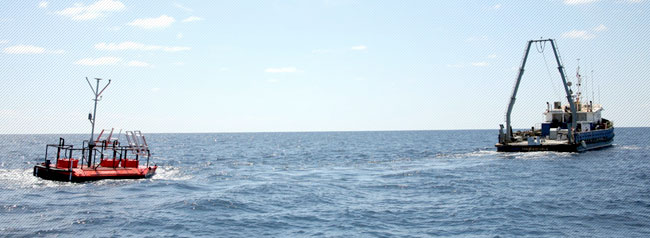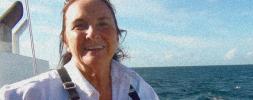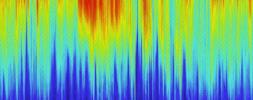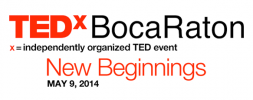Susan Skemp, who led FAU's ocean energy program since 2008 and was SNMREC's first Director, is retiring as of July 17.
Technology Testing

High pressure, differential stresses, inevitable corrosion, the possibility of collisions, and biofouling by marine life all present challenges for designers of marine renewable energy equipment. In the open ocean, and particularly in a busy shipping channel such as the Florida Straits, the additional requirement of zero surface signature only enhances the challenge, because it means that operations and maintenance pose even more difficulties. (At the same time, completely submerged equipment with depth control capability means that the threat of tropical storms and hurricanes is significantly lessened.)
Although SNMREC prototype testing will involve surface vessels, long-term operational deployments will not, except for maintenance activities. This means that generating systems will need to be semi-autonomous, in the sense that on-board sensing systems will be needed to monitor and predict system performance and conditions. Such performance and health monitoring systems are already a topic of considerable research and development at SNMREC.
Materials that are resistant to both corrosion and biofouling are also areas of investigation. Because underwater generating systems need both longevity and the ability to maintain their hydrodynamic characteristics in addition to the strength to withstand the forces—forces about ten times those experienced by wind turbine systems—of the Florida Current. Optimal design using new, hybrid materials is receiving considerable attention at SNMREC.
Because operational systems will be fully submerged, buoyant devices “flying” in the Florida Current not unlike a kite, control and optimization of power output is an additional consideration. Mooring and anchoring systems must be designed to handle the forces involved, and the complex dynamics of the entire arrangement must be understood so that arrays of devices will not interfere with each other. Research on these issues is also part of the SNMREC portfolio.



